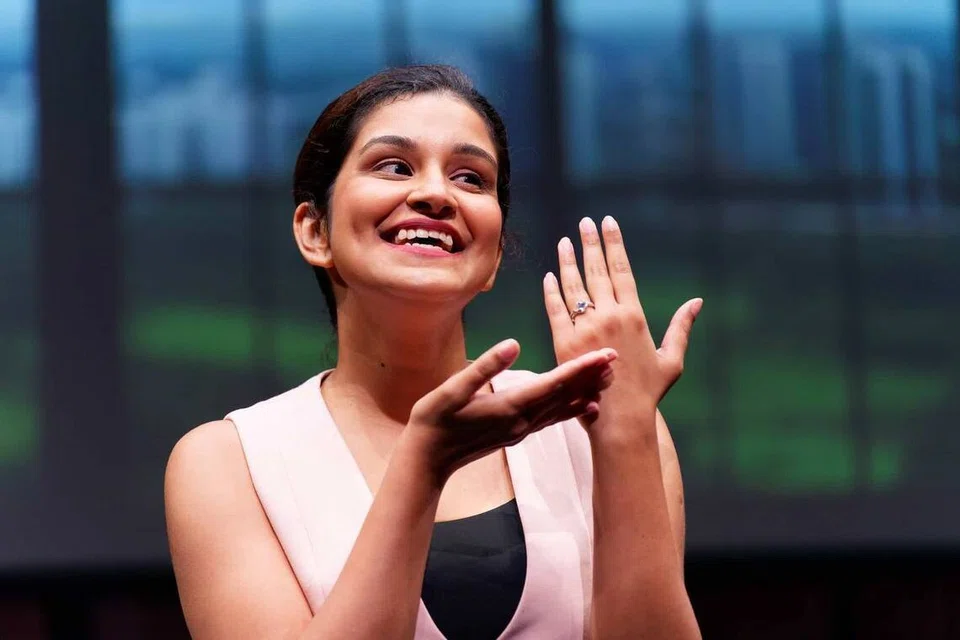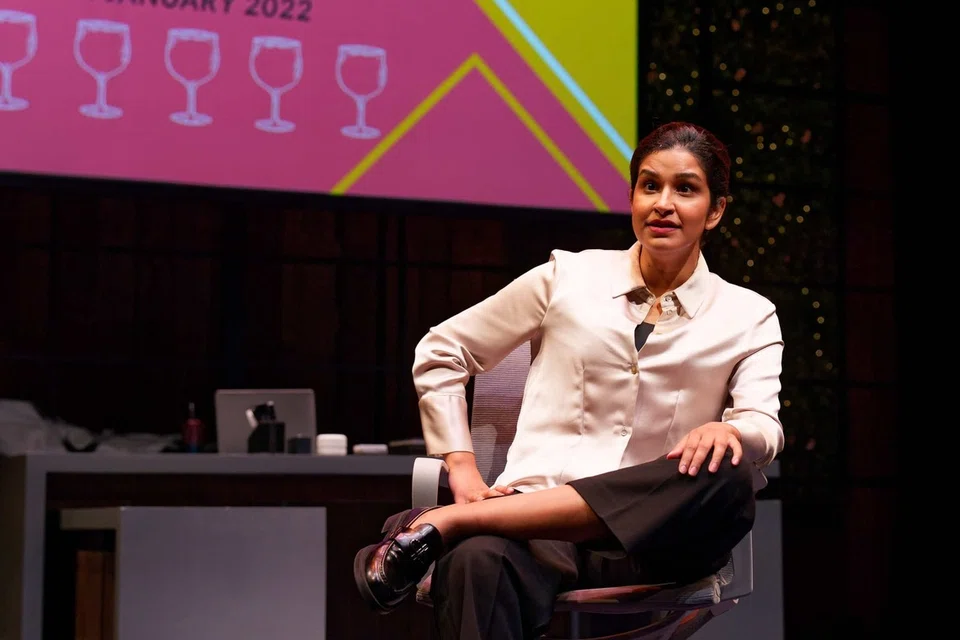As Ms Sindhura Kalidas gears up for another sold-out show of HOTEL, a critically acclaimed production by Wild Rice, she still makes time for the things that matter.
“I love the simple things – spending time with my family, especially my niece and nephew, putting on a record and enjoying a glass of wine with my husband,” she said.
In Singapore’s theatre scene, Ms Sindhura, 36, emerged as a compelling Singaporean-Indian voice. A multidisciplinary practitioner, she weaves together performance, dramaturgy, and activism. ‘Psychob***h’ and ‘Happy Indian Women’, in the making of which she wore three distinct hats – a protagonist in the former and a playwright and co-director in the latter – were hits among theatre-goers, quickly becoming some of the hottest tickets in town – so much so, people signed up to be on waitlists just to get a seat.
Her journey began unexpectedly at an early age when she found herself cast in Hippo and Friends, Singapore’s answer to Barney and Friends, at just six years old. “I was very close to my elder sister, and when she moved abroad to study, I was lonely and crying all the time,” Ms Sindhura recalled. “That audition was a way to do something, to be part of something.” It also taught her a formative lesson in professionalism, she noted. “Be on time because nobody is going to wait for you. Learn your lines. Be humble.”
Despite this early immersion in the world of drama, Ms Sindhura’s childhood was not solely defined by the stage. Encouraged by supportive parents, she sampled a variety of pursuits – piano, violin, tennis – going through a quintessential Singaporean child’s “rite of passage,” as she put it. Yet when the stage called, her family rallied behind her, albeit cautiously, owing to the financial and logistical challenges of the industry.
Ms Sindhura went on to pursue theatre formally at the National University of Singapore. Post graduation, she faced the stark reality of limited roles and opportunities. To sustain herself, she transitioned to teaching English and Literature at a private enrichment centre, a job she held for nearly a decade. The Covid-19 pandemic would later prove to be a turning point.
She returned to the theatre scene, which, at the time, had become more inclusive, with more roles for minorities. “Times are changing. Companies are more willing to work with newer voices, with people not entrenched in the theatre industry.” The push towards inclusivity was palpable in her reflections on Singapore’s evolving arts landscape. “People are now very aware of being more inclusive, working with people across different ethnicities, sexual orientations, gender identities, faiths, and abilities,” she observed.
On the subject of racial representation, Ms Sindhura said, “In my early days, it was definitely harder to get roles as a brown woman. If you look at archival footage, the majority of roles were written by and for Chinese men. Female roles usually went to Chinese women. That’s a statistical reality.” She acknowledged that the scarcity of roles for minority characters could have also been caused by writing biases and casting practices due to the size of the talent pool and audience demand.
But she stressed that the landscape is shifting, influencing how she chooses her projects today. “I ask myself, ‘What is this character I’m playing?’ Sometimes in commercial projects, they just want ‘an Indian’ without context,” she explained. “So I want to understand the role fully, not just be a token.”

This selectiveness reflected her commitment to challenging stereotypes and participating in work that respects nuance. One particular incident she recounted was when an advertising agency approached her to play the role of an Indian woman in an advertisement aimed at raising awareness about drug abuse.
The role was a non-speaking one – essentially a background figure in a campaign illustrating the devastating impact of drugs on families. “Drug abuse is a very real issue affecting many Singaporean families,” Ms Sindhura said, “but outside of ad campaigns, brown communities tend to be overrepresented in fictional accounts of drug abuse as well, and this overrepresentation fuels a stereotype.” Consequently, she declined the role.
This decision, she reflected, marked a pivotal moment in her journey. “In the past, maybe five or ten years ago, I would have taken the role for the paycheck or exposure,” Ms Sindhura said. “But now, as I have grown and matured in the industry, I feel a greater sense of responsibility regarding the roles I choose.”
Her influence continued to grow in 2023, when she was appointed an associate artist with The Necessary Stage – a role that empowered her to create socially engaged theatre and mentor emerging talents.


